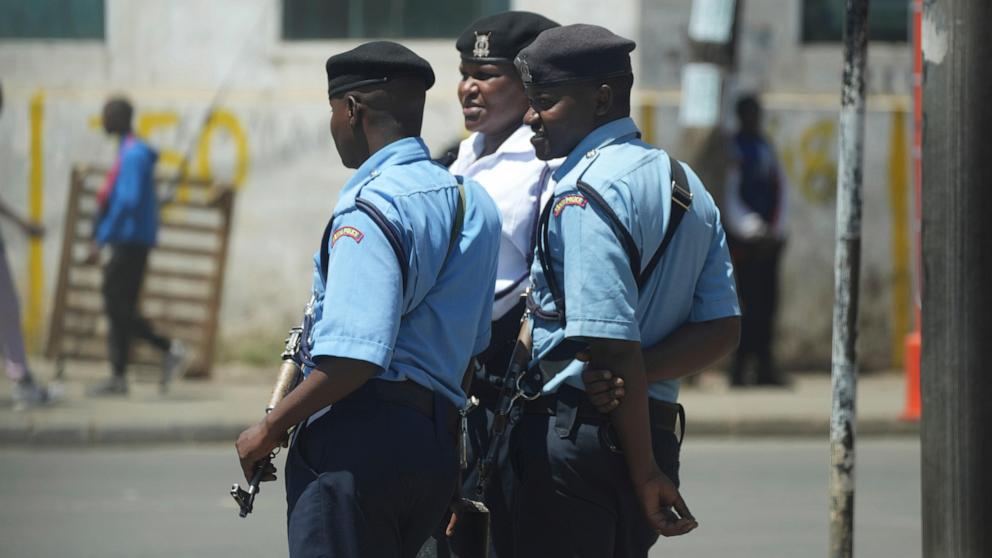Kenyan officials have announced that the Kenyan government is scrapping plans to send at least 1,000 police officers to Haiti following the unprecedented violence that has erupted in the Caribbean country and Prime Minister Ariel Henry's announcement that the country will remain in the country.
NAIROBI, Kenya — Kenya will send at least 1,000 police officers to Haiti following unprecedented violence in the Caribbean country and Prime Minister Ariel Henry's announcement that he will step down once a presidential council is established. Plans are being canceled. officials said Tuesday.
Kenya agreed in October last year to send a UN-recognized international police force to Haiti, but the country's Supreme Court ruled in January that this was unconstitutional, citing was the lack of mutual agreement between the two countries regarding such deployments.
Kenyan President William Ruto said he and Henry witnessed the signing of a reciprocal agreement between Kenya and Haiti on March 1, paving the way for the deployment.
Under the plan, a United Nations-backed multinational police force led by Kenyan police officers would help quell the gang violence that has long plagued Haiti. But violence has escalated sharply since February 29, with armed groups burning down police stations, shutting down a major international airport, storming two of the country's largest prisons and releasing more than 4,000 inmates. .
Scores of people have been killed and more than 15,000 people have fled the gang-hit areas and become homeless. Food and water supplies are dwindling, and the main port in the capital Port-au-Prince remains closed, leaving dozens of containers carrying vital supplies stranded.
Henry has been in Puerto Rico since last week after being barred from his home country after returning from a trip to Kenya to back up his plans to expand to African countries.
“It is true that the planned deployment of police officers has been postponed,” Kenya's Chief Minister for Foreign Affairs Kolili Shingoei said on Tuesday.
“There has been a fundamental change in the situation in Haiti as a result of the complete breakdown of law and order,” added Singoei.
Henry's announcement on Tuesday that he would step down once an interim presidential council is established signaled a bow to international pressure to make way for new leadership in a country overwhelmed by violent gangs.
Henry spoke after Caribbean leaders and US Secretary of State Antony Blinken met in Jamaica to discuss solutions to Haiti's deepening crisis.
“The government that I run intends to remove the council as soon as it is established,” Henry said in a recorded statement.
Mr. Singoei said that without a clear government in Haiti, there would be no international police presence. The Kenyan government will therefore wait for the establishment of new authorities in Haiti before making further decisions on their deployment.
On Monday, Kenya's Interior Minister Kindiki Kisule said the officers selected to go to Haiti are ready and awaiting deployment once the Supreme Court's demands on bilateral agreements are met.
Critics of Henry, who took over as prime minister nearly two weeks after the assassination of President Juvenel Moïse on July 7, 2021, argue that Henry was never elected by the people or parliament and that his last remaining senator's term is over. Congress maintains that it will no longer exist even after it expires. In January 2023.
As a result, Haiti now has no elected representatives.


